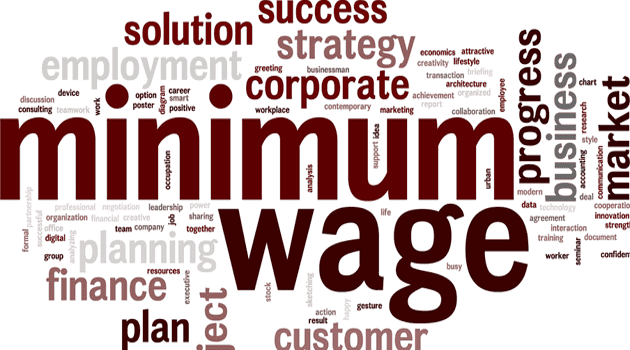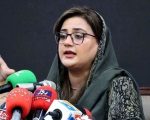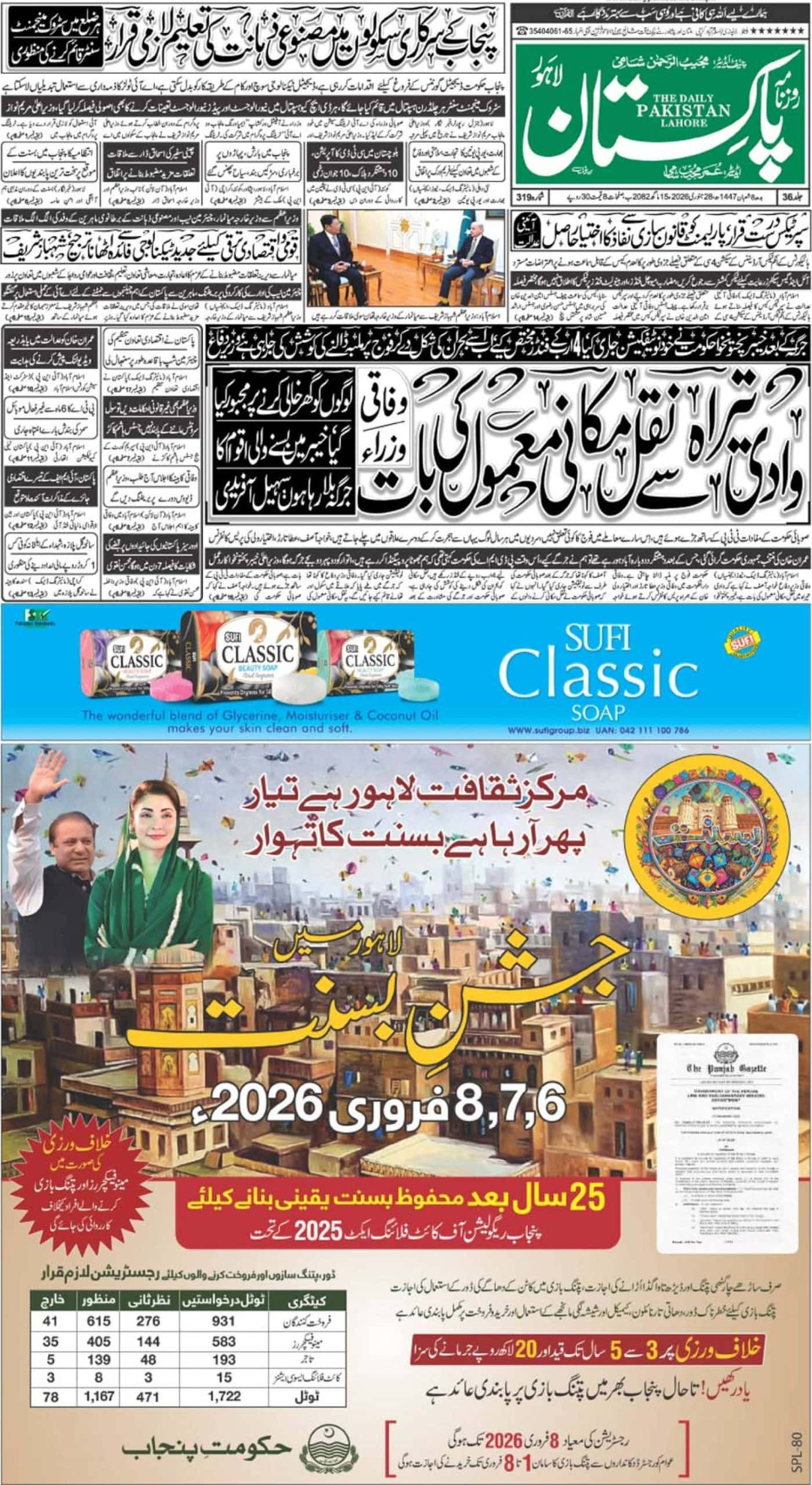Ishaq Dar, former finance minister of Pakistan, generously stated in his annual budget speech for 2017-18: “Minimum wage: On the pattern of increase in the pay of Government employees the minimum wage of labor for their benefit is being increased from Rs.14,000 to Rs.15,000 per month.”
In our beloved land, the distance between words and actions is unfathomable, for even the words of people holding the highest pedestals don’t match their actions. It’s a common belief that one can say anything to placate others, without really intending to help them. Our former finance minister also followed the same formula in his budget speech.
Instead of playing with technical terms, let’s try to understand whether the problems of the poverty-stricken proportion of society can be resolved with Rs. 15,000 per month or not. But, prior to that, it is necessary to know the salary of underprivileged and poor working in different capacities. Are they being paid the minimum wage set by the government or not? The answer is rather unsavory. It reveals both the reprehensible attitude of policymakers and the greediness of the private sector.
Majority of the workers in Pakistan strive hard in the private sector which is, unfortunately, beyond the control of the government, and wages are utterly dependent on the needs, compulsions and adverse conditions of the candidate. Poverty has forced people to be exploited and suppressed by the private sector. The government has surrendered the society before the capitalist and feudalist.
Actual wages
Every organization hires a peon who spends all his day running from one place to other, sometimes carrying messages and other times either carrying water bottles or furniture. The average salary of a peon is between Rs. 10,000 to Rs. 12,000 which is enough only to mock his adversities. All his wages are documented. Some organizations even provide salary slips showing the amount paid as monthly salary.
The worries of a woman serving as a maid to earn the bread of her family are of no value. She is old, poor and inferior. Unfortunately, her self-esteem is murdered brutally every day, multiple times: When her boss yells at her that the bathroom hasn’t been cleaned properly or her self-respect is crushed by making her sit on the floor. A diatribe is launched upon her only for complaining that the water is too cold to be used for washing dishes in the winter season. She has to suffer the degradation only for Rs. 800 to 1000 per month, per house chore. In our homeland, defining the minimum wage during the presentation of the federal budget fulfills the policymakers’ appetite of arrogance and achievement. Then who’s responsible for her pain and misery coupled with agonizing disrespect all day? Except for the inability of meeting the cost of living, the poverty-stricken housemaids can’t even afford to take days off – the way private sector employees can – for even maternity leaves result in job termination. Consequently, she has to work during her pregnancy, causing unimaginable discomfort and severe health issues.
A shopkeeper earns less than Rs 10,000 monthly after working more than 10 hours a day, 7 days a week. The government doesn’t even have these workers registered here, whereas in many countries every worker is registered and considered as an asset. But in Pakistan, the bloodsucking private sector isn’t concerned with the miserable life of workers only due to lack the lack of interest of lawmakers.
Child labor isn’t considered a crime here. Rather the resourceful feel proud to portray it as an act of social welfare. The story of the death of 11-year-old Misbah vividly depicts our cruelness. An investigation has been carried out to find out whether she died naturally or she was murdered while working at the home of a provincial minister’s brother. Trusting the investigators is impossible, for at first, the government must have registered an FIR against the brother of the provincial minister under the Child Labour Act which restricts employing children under 14 in work.
Malnutrition, unavailability of basic needs, substandard lifestyle and homelessness is killing the poor. On the other hand, ex-foreign minister’s asserted in his annual budget speech (2017-18): “At the center of our economic policymaking is the goal of poverty alleviation. Over the next five years, we should focus on the provision of welfare services to the low-income segments of the society with the aim to reduce poverty from the current 29% to less than 10%”.
The “sin” of patriotism has led to punishment: People of the land of the pure only want to lead a happy, prosperous and healthy life. Their dreams, unlike those of the rich and powerful, are ordinary as the only wish forcing them to leave their homes at the dawn is to earn bread for themselves and their family with respect. Stiffness after work, the harshness of weather or undesirable circumstances don’t bother the poor, but their children’s empty stomachs, ragged clothes, eyes filled with tears and their dark futures always keep haunting them. Hyperinflation is taking their children to the depth of ignorance and crime.
The increase in salary in the private sector is thoroughly dependent on business’s success which is unfair and unlawful by all means, yet overlooked by government. Mighty and resourceful exploit the weaknesses of the poor and bribe or influence the government officials to suck even the last drop of blood from the employees. In contrast, renowned economists opine otherwise, for instance; Dr Ha-Joon Chang, an economist and author, in his book, 23 Things They Don’t Tell You about Capitalism says, “Sometimes it is in the long-run interest of the business sector to restrict the freedom of individual firms so that they do not destroy the common pool of resources that all of them need, such as natural resources or the labour force.”
Unfortunately, everything is seen through the glasses of socioeconomics which widens the gulf between people. Money only means the provision of food and shelter to the poor, on the other hand for elite it’s for festivity, a luxury car or a vacation trip to Dubai or Switzerland. Our policy-makers are either unaware of the ground realities or they are deliberately mocking the poor constantly. The prevailing epidemic of poverty is a result of government’s failure in microeconomics.
Instead of treating symptoms, the roots of poverty are to be hit. Our focus is on the provision of needs of an individual whereas we should focus on the reasons of the need and try to understand the seriousness of the complexities of poverty. It is just as providing food to strengthen a person suffering from a disease and overlooking the measures to be taken in order to prevent the epidemic. Teaching skills to alleviate poverty isn’t the solution, a dire need of reforming our system is necessary. Wages that enable parents to fulfill the needs of their family should be paid.














